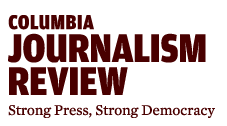In the US, you can still say almost anything, but someone just may be listening in
 Meanwhile, in the land of the free…
Meanwhile, in the land of the free…
In the US, you can still say almost anything, but someone just may be listening in
By Dan Gillmor
May / June 2012
In December 2010, the major payment systems used to buy goods and services online decided that Wikileaks was no longer an acceptable customer. Mastercard, Visa, and PayPal summarily cut off service, putting Wikileaks into deep financial trouble and further marginalizing an organization that had become an object of fear and loathing inside the US government and other centers of wealth and power.
While many in the new media world sounded an alarm, the response of journalists from legacy news organizations was mostly silence, except to take note of what had happened. By ignoring the implications of what had happened—a financial blockade of an organization engaged in recognizably journalistic pursuits—traditional media people demonstrated how little they understood or appreciated the information ecosystem in which they also exist. And by failing to object, loudly, they gave tacit assent to tactics that should chill people who genuinely believe in free speech.
This is not just an issue for journalists in places like China or Saudi Arabia or Russia, where governments are creating more and more stringent restrictions on what people can say and do online. It is an American matter as well. In the developed world, Hollywood and other corporate interests have taken the lead in threatening the Internet’s freewheeling nature—and they’ve had plenty of help from government.
The Obama administration has pushed gratifyingly hard to open up speech for dissidents in dictatorships, and decried censorship elsewhere. Yet the US government has also acted to curb online communications it deems objectionable. While this clampdown is often in service of the copyright lobby, the tactics have sometimes smacked more of authoritarian regimes than of the American tradition. The administration’s campaign against Wikileaks and prosecutions of journalists’ sources highlight the vulnerability of journalism, and the public’s right to know, in this networked age, what government is doing in our names and with our money.
Read the full article at:
http://www.cjr.org/feature/meanwhile_in_the_land_of_the_f.php
